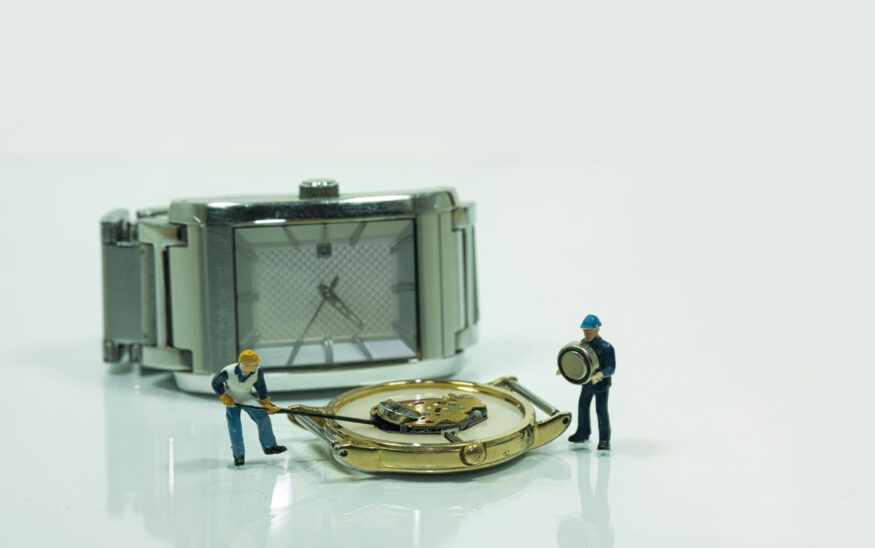Craftsmanship in a Disposable World: The Decline of Repair Culture
From unrepairable zippers to vanishing cobblers, they just don't make em' like they used to. But, is that a bad thing, or just an inevitable evolution of consumerism?
Jeff Rundles //December 27, 2023//


Craftsmanship in a Disposable World: The Decline of Repair Culture
From unrepairable zippers to vanishing cobblers, they just don't make em' like they used to. But, is that a bad thing, or just an inevitable evolution of consumerism?
Jeff Rundles //December 27, 2023//
My wife has a very nice ski jacket that we got for her birthday a couple of years ago, and last winter the zipper broke. I suggested we just take it to a tailor and have it repaired. However, we soon discovered that (a), there aren’t that many tailors around anymore, and (b) the one tailor we did find can’t repair the fancy zipper on this (relatively) expensive jacket.
This incident got me thinking about other professions/trades that are waning in our world, and how sad that is. For instance, I have a few wristwatches that from time to time need new batteries or a cleaning, and sometimes even a repair, and the watch repair man I take them to is nearly 80 years old. When he goes, I’ll have to go digital, I guess, because watch repair isn’t high on the list of desirable trades these days.
And over the years I have taken my shoes to a shoe repair shop to have the leather conditioned, or the soles and heels redone, but my long-time cobbler has either passed on or retired and it’s difficult to find such a shop anymore. I once even took my baseball glove to my guy for repair, but I guess now I’ll just have to buy a new mitt. Also, I guess, I’ll have to buy new shoes.
Like the unrepairable zipper because of the lack of expert tailors, and the unfixable timepiece because of a dearth of watch and clock repairmen, the elimination of cobblers in our midst is just another sign that we don’t value craftsmanship anymore. We’d rather replace than repair. Funny, but I also observe that many of these new products — zippered garments, shoes and wristwatches, of course, but tons of other things as well — aren’t worth repairing in any case because the quality has slipped. We had higher standards when we were repair-centric; when everything is very simply trashed and replaceable, none of it is all that valuable.
And that’s a shame.
In considering this, I looked around my house and I have all of the usual things — couches, chairs, tables, beds, etc. — but most of it, while purchased at “better stores,” as it were, is simply expendable if it wears out. The exceptions are the few pieces I have purchased in my life or inherited from my exquisite-taste mother that are antiques: They are valuable and were made by craftspeople who cared enough for the quality of their work that they signed their pieces. Oh sure, it is possible to find cabinet makers and craftspeople who make cabinets, tables, chairs and such, but these people are few and far between. It also occurs to me that people used to re-upholster chairs and sofas quite often, but this too is now a craftspeople-skilled trade expertise sadly in short supply.
There was a cartoon in The New Yorker years ago that had an older man in an apron standing in front of a hardware store talking with a younger man in a business suit holding a briefcase. The younger man says, “Sorry, Dad, but I’m into software.” This cartoon comes to mind for me often, as it speaks to the idea that we don’t pass along skills and expertise anymore; that we’ve become a throw-away society and economy.
Some of this is good, no doubt: The speed of change does, in very many instances, breed innovation, entrepreneurial zeal and advancement in many vital areas. But we also lose something in the process: a sense of connection to our past that innately devalues what we have today. We have a lot of whiz-bang technology, of course, but almost all of it will be obsolete in a matter of months, replaced by the next best thing.
There must be a way to innovate and advance without losing the value in skills honed for centuries. Can’t I have wizardly gadgets and devices amidst my antiques and enjoy the wonders of modern innovation side-by-side with the majestic qualities of craftsmanship? I like my analog watch, and my high-quality leather shoes, and from time to time I’d like to take a few things to the tailor that would be nice to keep long term.
I hate to think that value and quality — permanence — are irreplaceable.
Perhaps it’s me that’s become the antique.
 Jeff Rundles is a former editor of ColoradoBiz and a regular columnist. Email him at [email protected].
Jeff Rundles is a former editor of ColoradoBiz and a regular columnist. Email him at [email protected].

























